Popular Posts
-
Thriller - en grym film (1973) 6.5 / 10 A young woman, muted after a sexual assault as a child, is trained to seek violen...
-
"SHORTBUS" see all 1 trailers & videos Peter Stickles "...
-
Unsurprising that we wrap this list up with a 23 year-old Brazilian. They’re hot, and they...
-
Just because the sex is real doesn’t mean it’s porn. posted on February 21, 2014 at 5:44pm EST Louis Peitzman BuzzFeed Staff...
-
Unsimulated sex in Mainstream movies (Updated) From Wikipedia, the free encyclopedia Jump to: navigation , search Unsimulat...
-
Naked News is the only fully nude news program of its kind in the world that is real news, breaking news from around the world, sports, ...
-
Chalk it up to years of physical romance consistently interrupted by Autobot vs. Decepticon warring, but Shia LaBeouf is antsy to make...
-
SEX EDUCATION: Clara Morgane's Kamasutra Indira Varma's Kamasutra 19...
-
Jump to: Actress | Producer | Self Hide Show Actress (3 titles) 2011 The Lower Angels ( post-production...
-
Tabuloser Hardcore Sex Im Bereich der Privat-Videos sind alle sexuellen Tabus schon längst gefallen. Falls es da früher...
Friday, June 29, 2012
Sunday, June 24, 2012
Wednesday, June 20, 2012
Sunday, June 17, 2012
Sunday, June 10, 2012
WEARING SPANX: Do powerful women need to tame their unsightly bulges?
 Adele wore four pairs of Spanx to the 2012 Grammys. She had to take off two pairs before her performance.
Adele wore four pairs of Spanx to the 2012 Grammys. She had to take off two pairs before her performance.  Kim Kardashian said of the undergarment, "It just really smoothes everything out."
Kim Kardashian said of the undergarment, "It just really smoothes everything out." 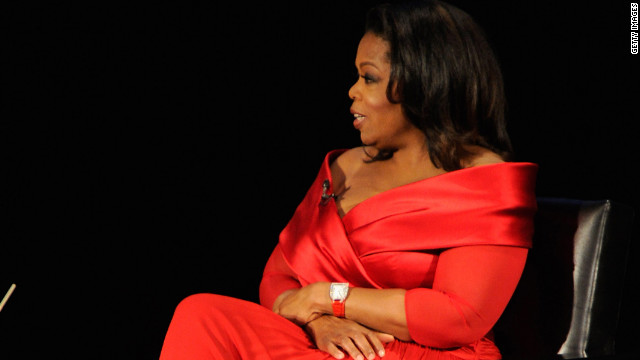 Oprah Winfrey was an early supporter of the product.
Oprah Winfrey was an early supporter of the product. 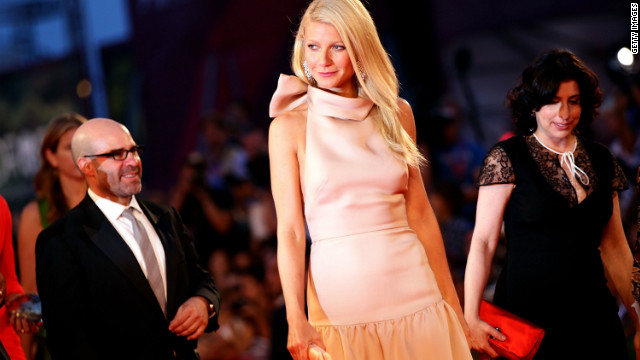 Among Hollywood celebrities, Gwyneth Paltrow is a fan.
Among Hollywood celebrities, Gwyneth Paltrow is a fan.  Tina Fey: "Spanx. It's my dream come true."
Tina Fey: "Spanx. It's my dream come true."
<<
<





>
>>
STORY HIGHLIGHTS
- British pop star Adele wore four pairs of Spanx at the Grammys
- Orit Avishai: Girdle-like garments were symbols of oppressive beauty standards
- She says embracing shapewear gives women an impoverished sense of empowerment
- Avishai: We can blame ourselves for supporting the very object that constrains us
Orit Avishai is an assistant professor of sociology at Fordham University. She is the author of "Managing the Lactating Body: The Breast-Feeding Project and Privileged Motherhood."
Adele, who won big at the 2012 Grammys, once told Karl Lagerfeld off when he said that she was talented and pretty but a little too fat. Maybe his words got to her.
The British pop star made news this week when she admitted to wearing four pairs of Spanx under a dress that wowed the audiences at the Grammys. Apparently, this was an improvement over her original dress that featured a built-in corset and in which she passed out when she tried it on.
Spanx is a line of undergarments that offers solutions for women of all sizes and shapes. You can target bulging stomachs, jiggling upper arms, aging breasts and any other body part that may need some enhancement. No longer an item of fantasy play or a secret amongst plus-sized women, Spanx products have become prized accessories flaunted by the Kardashians, Oprah and suburban moms.
Spanx's selling point is that it helps smart, successful women of all ages to build their confidence by, well, looking good. But playing with fire might be a more adequate metaphor when we consider that less than half a century ago, women denounced Spanx-like garments as symbols of oppressive beauty standards.

Orit Avishai
When women got rid of girdles and garter belts en masse in the 1960s, they didn't only reject restricting undergarments. (And restrict they did; it's hard to ride a bike, perform surgery or even breathe, as Adele learned, when your midsection is squeezed tight).
They also rejected a society in which women were underemployed, underpaid and underappreciated. Throwing away girdles and curlers seemed like the dawn of a new era. Women got jobs, demanded equal pay and learned to be as tough as their male peers.
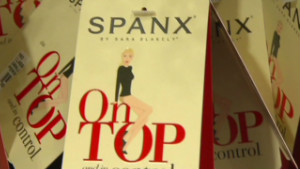
 Spanx founder makes billionaires list
Spanx founder makes billionaires list 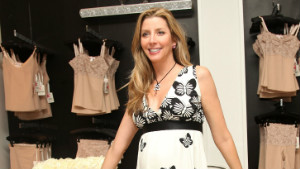
 Spanx slips owner into billionaire club
Spanx slips owner into billionaire club
Fifty years later, the girdle-like Spanx is back thanks to Sara Blakely, a brilliant woman who built a multimillion empire. Blakely used $5,000 to start a brand that defines its category, shapewear. She owns 100% of a company that turns a handsome profit. She is the youngest female self-made billionaire in the world. She would be a darling of the women's movement if her innovation wasn't antithetical to everything else it stood for.
The twist is that Spanx prides itself on empowering women.
The tagline for its In-Power panties that promise to whittle your waist, firm your figure and amp up your look is "powerful women wear powerful panties."
The company's catalog proclaims: "Tame your tummy and create an hourglass silhouette with Super Higher Power, our new comfortable yet powerful high-waisted hosiery shaper.... Now, you've got the power!"
Translation: Powerful women tame unsightly bulges.
It wasn't supposed to be this way. The protesters who descended upon Atlantic City in 1968 to picket the Miss America pageant weren't clamoring for more comfortable girdles. They wanted to change the rules of the game, telling women that their power lay in their heads, not in their bras and panties.
What the 1968 protesters fought for still matters today. Despite huge progress, our society is not a post-feminist era. Women earn less than 80 cents to a man's dollar, hold about 17% of the seats in Congress and represent 3.6% of Fortune-500 CEOs.
Of course, women aren't marched to their lingerie drawers at gunpoint. They choose to spend $250 million a year on Spanx products alone. Some would argue they make a wise choice. While beauty standards have changed, women are still rewarded for boosting their appearance. Better-looking women are more likely to be hired and promoted than those who are less attractive.
But when women think that they can have both their Spanx and their paychecks, they miss the big picture.
The culture that gave us Spanx holds us to impossible standards of beauty that even the sveltest women cannot meet (just think of all the Hollywood stars who are always trying to slim down). And it provides us with an impoverished sense of empowerment.
Sadly, even women running for the highest office are not immune. Like the beautiful actresses who go the extra mile to put on their best appearance on the red carpet, politicians are as attuned to perceptions.
Michele Bachmann, Sarah Palin and Hillary Clinton all upped their wardrobe ante when they stepped into the national spotlight. Ending up on People's worst-dressed list could be as embarrassing for a politician as for a starlet.
Of course, we can't blame Spanx or Blakely for any of this. All of us are to blame.
With our dollars, we support the very object that constrains us. When we wear shapewear, we buy into messages that equate women's power and abilities to the size and shape of their silhouettes. Little wonder that a woman of Adele's caliber felt the pressure, too.
We recommend from the Web
From around the web
Saturday, June 9, 2012
LS AND D: Sex went from being a casual conquest to a quest for love for Lisa Dierbeck
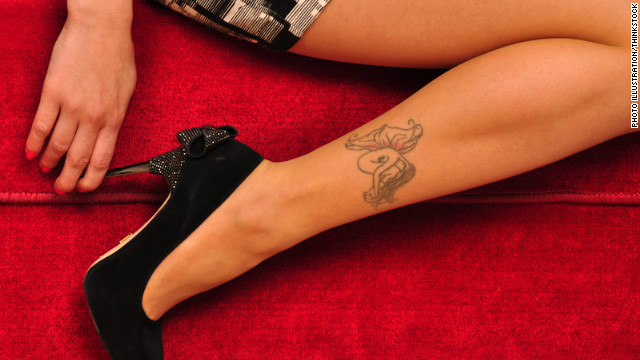
Sex went from being a casual conquest to a quest for love for Lisa Dierbeck.
STORY HIGHLIGHTS
- The author believes "casual sex" doesn't exist, but "heartless" does
- Hooking up with strangers in her youth provoked combination of victory, devastation
- A "reformed tramp" at age 40, she now considers herself to be a romantic
If it's not emotional, I'm not interested. For me, sex without feeling is an empty ritual, a cold, mechanical exchange that leaves me lonely and depressed. Given the choice between that and solitude, I prefer to be alone.
Even the phrase "casual sex" has a hollow ring that bothers me. It's a contradiction in terms. Where's the casual part? I've thrown casual dinner parties, serving Chinese takeout on paper plates. I've worn casual clothes to plush offices on Fridays. But applied to relationships, casual is a code word for apathy. If someone says, "This is only physical," my translation is: "I don't care about you." Forget casual. The more accurate word is heartless.
Sex strikes me as too intense a venture to be taken lightly. Thrilling and uncertain, it involves baring your soul, not just tearing off your clothes. Because sexuality is a powerful, anarchic force over which we have little control, it's soothing to pretend it's no big deal. I used to be blasé about it. I treated sex like a swimming pool. Instead of hesitating, I always plunged right in.
Now, as a reformed tramp at 40, I look back at my wild ways and wonder what planet I was on. I have more respect for sex, its hazards and surprises. Watch out for that sweet dark-eyed hunk at the watercooler; he may turn out to be a mean, manipulative jerk. And if you're hell-bent on a casual liaison, you might miss that shy, bespectacled geek at your local library who could set your heart aflame and worship you.
Either way, a sexual experience is unpredictable. Offering a rare chance to feel transcendence -- an ecstatic state that transports people outside themselves -- the sexual embrace has a strong spiritual side. Whatever happens, having sex with someone changes you.
I didn't always think this. For a long time, I saw sex without strings as the key to independence. I was raised in 1970s New York, a rollicking, amoral, sex-crazed place. The decade introduced freedoms undreamed of by my grandmother Lillian, who'd been taught to close her eyes chastely during intercourse and contemplate her rose garden. Claiming the right to an appetite was a critical step forward for women.
But in our eagerness to take the guilt out of sex and let it be natural and healthy, we might have gotten a little carried away. During my childhood, the rules were suspended while the Sexual Revolution swept through town. Our teenage sisters lurked in hotel lobbies, stalking rock stars. Our moms and dads frolicked at key parties. Our high school teachers took their students to bed, and no one got sued or fired.
My friends and I roamed the streets of Manhattan incautiously, a reckless pack of underage girls dressed to kill, in platform shoes and hot pants. My single burning ambition was to be a sex kitten. As ambitions go, it was pretty easy to accomplish
It took me many years to figure out that I wasn't who I was pretending to be. Outwardly, I'd become a bold, brazen adventuress who made a habit of propositioning men she hardly knew. I'd hand my phone number to a guy at a party, arrange to meet him on his doorstep, spend an hour or two in his apartment, and slip away. Every time I did this, I felt a curious combination of victory and devastation. I was afraid of something that I couldn't pinpoint, and I wasn't nearly as frisky and footloose as I acted. I was a confused young woman who had trouble trusting men.
Easy sex was a tactic to keep men at arm's length by treating them as conquests. If this sounds like something a guy might do, it was. Alarmed by the power imbalance between men and women, I thought sleeping around would even up the score. I wore my sexuality like a protective suit of armor. My swaggering bravado was a put-on.
I led a rather sad, disconnected life -- until I mustered up the courage to let my guard down. I can't help wondering now if maybe there are some women out there, like me, putting on this same kind of act, suppressing their passion and vulnerability. I believe women today are under pressure to reinvent them, to conform to a bed-hopping, no-strings ethos that's in vogue.
Now that the love affair has been replaced by the booty call, it's fashionable to treat sex as something without weight or meaning. Our aggressively modern culture has chipped away at our collective faith in romance. Decades ago, "The Joy of Sex" made history with its illustrated, step-by-step recipes for lovemaking. It was a useful, practical source of information, except for one colossal error.
Unlike cooking, sex isn't a hobby. People aren't playthings. They're richly intricate creatures full of good and evil impulses, psychological conflicts and contradictions. Sometimes we insist upon a "casual relationship" to deny the uncomfortable truth: Sex is complicated.
As a society, we've tried to simplify things by separating physical pleasure from emotional attachment. At the same time, we've started to confuse sexiness with physical perfection. While we're running off to our plastic surgeons for Boot injections and beast implants, we've forgotten that what's really sexy can't be bottled. It's an inner spark that's as distinctive as your personality. Being hot is a state of mind, and it's subjective. It takes two to generate heat. Desire demands emotion.
In fact, the alchemy of attraction is so personal and inexplicable, no one fully understands it. Poets, playwrights, and novelists have spent centuries trying to grasp it. A how-to guide can teach you how to have a bigger, better orgasm. A vial of Viagra can "enhance performance" so you can sex around the clock. But there's no secret formula for what floats your boat, or who. Ever since I stopped leaving my heart on the bedside table, I've thought of sex as mystical. Romantics like me may be an endangered species, but instead of trying to blend in at the swingers' parties, let's stand up and be counted.
Subscribe to:
Posts (Atom)



